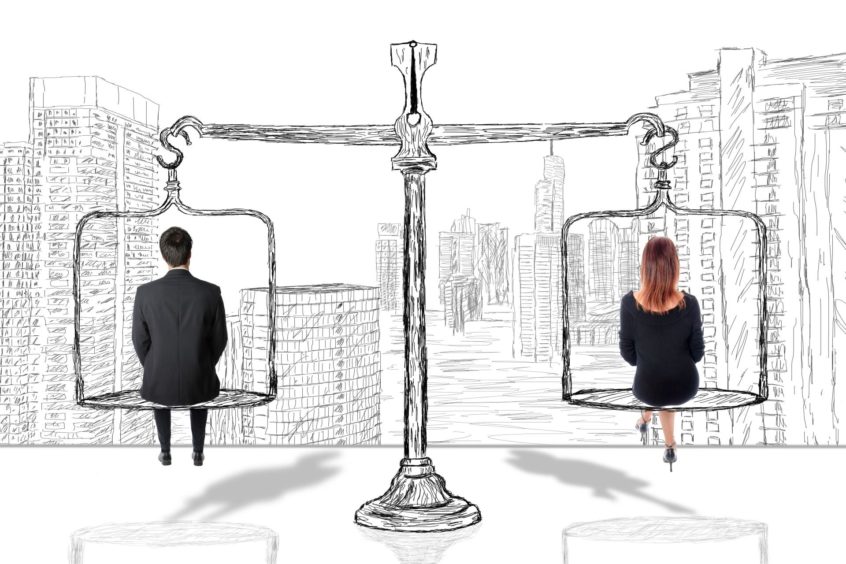
Many women face the challenge of juggling motherhood with work during their careers; a task which can become even more difficult when you work for two weeks at a time offshore.
This year, POWERful Women, an initiative to increase the representation of women at the top of the UK energy sector, released a report on the barriers female employees face in middle management.
One case study in this report said: “I can’t do my job, be a good mum and push my career at the same time. I just want to come in and do the day job every day and not screw up – I don’t want to work 24/7 to climb the ladder.”
The report found that despite diversity policies being in place across the energy sector, women often did not take full advantage of them for fear of it negatively impacting their career progression.
Another contributor explained: “I was able to switch to part-time when I came back from maternity leave, but my 4 days always ended up being 5 in practice and I felt my flexible hours were questioned by colleagues. Going part-time meant I had to make a trade-off between progressing my career and juggling family and childcare.”
Case Study – a conversation with Emily Whiteman
Energy Voice spoke with Emily Whiteman HSE&A Supervisor at CNOOC International on her experience of returning to life offshore after maternity leave.
Ms Whiteman, who works on the Golden Eagle platform in the North Sea, found that the biggest issue new mothers working offshore face is the lack of a support network.
“A lot of people that maybe work onshore in the office or my friends, they’re going back to Monday to Friday and I don’t think they really understand.
“I’m away for two weeks and I don’t think there’s nobody else I know that’s going through that.
Damned if you do, Damned if you don’t
Whiteman spoke about how she felt like others might be judging her for leaving her baby at home while she worked offshore.
“My biggest struggle was nobody else was really going through it and if you’re leaving a baby at home.
“Even though nobody openly said ‘I can’t believe you’ve left a child at home’, it’s a lot of your own pressure you put on yourself.”
Although people did not judge her for her decision to return to work offshore, Whiteman often heard comments that knocked her confidence.
“I’ve had a few people that have said ‘I don’t know how you can do that’.”
Mums can find themselves in a catch-22 situation where they face judgment regardless of if they stay at home to look after their baby or continue to climb the career ladded.
Whiteman explained: “It doesn’t matter if you work offshore or if you work on shore.
“I think mums always have a stigma attached because you’re damned if you do and you’re damned if you don’t.
“If you go back to work, it’s like ‘How dare you leave your child?’, but then if you choose to then be a stay-at-home mother, it’s crazy, whatever you do, somebody got something to say.”
However, most people have been very positive towards Whiteman as she returned to work.
“The positive comments outweigh the negative comments and the number of women when I put a post on LinkedIn about my breastfeeding journey the comments have been women saying: ‘I wish I’d done that.’ ‘You’re going to get quality time.’ ‘Don’t let anybody judge you.’
“So even though there have been some negative comments there, positive comments outweigh the negative, but human nature, you focus on the negative comments.”
Options for new mums
While offshore, her colleagues were supportive, ensuring that she was alright and receiving the support she needed.
Her employer even installed a freezer in her cabin for her to store breastmilk while away from home.
Whiteman’s experience served to support the findings the of POWERful Women’s report, noting that despite companies providing options for those returning from maternity leave, new mums often don’t take them out of fear of looking lazy.
“You don’t want to be shown as having fevers because you’re a woman or a new mom and you and women by default always tend to work only bit harder because it’s like we’ve got something to prove.
“Not all women I know. Most women I know in the industry are always working hard. It’s like they’ve got something to prove.”
Mums and the gender pay gap
Whiteman brought up the gender pay gap, discussing the idea of how motherhood contributes to the issue.
She said that usually the gender pay gap is thought of being between men and women, however, according to Whiteman: “If you actually look at it more, it’s usually between mothers and everyone else because mothers are the ones that have to usually go part-time, mothers are the ones that can’t go to network events on an evening.”
This concept of mothers being hit hardest by the gender pay gap is often referred to as the ‘Motherhood penalty’.
Earlier this year, Forbes produced an article reporting that 94% of occupations experience the gender pay gap.
On average women earn 83 cents for every dollar a man earns and mums, on average, earn only 74 cents to the dollar.
New mums: “stop being so hard on yourself”
There are advantages to working offshore as a parent, as Whiteman explained: “To think of the long term thing of I’m getting time off to spend with him.
“I’m not doing Monday to Friday, you know? I’m getting to enjoy quality time.”
Whiteman said to all new mums looking to return to work offshore should “stop being so hard on yourself”.
“Becoming a mother is one of the most rewarding but difficult things I’ve ever done, and I’m constantly overthinking everything, constantly thinking, ‘is this right?’, ‘what if I don’t do this?’
“It’s like you’re not just thinking about yourself anymore, you’re managing somebody else’s life completely. So it’s like another job in itself.
She said that if she could go back to give herself advice it would be: “Just stop overthinking, Emily. Enjoy it!”
Recommended for you


 © Supplied by Emily Whiteman HSE&A
© Supplied by Emily Whiteman HSE&A © Shutterstock / thodonal88
© Shutterstock / thodonal88